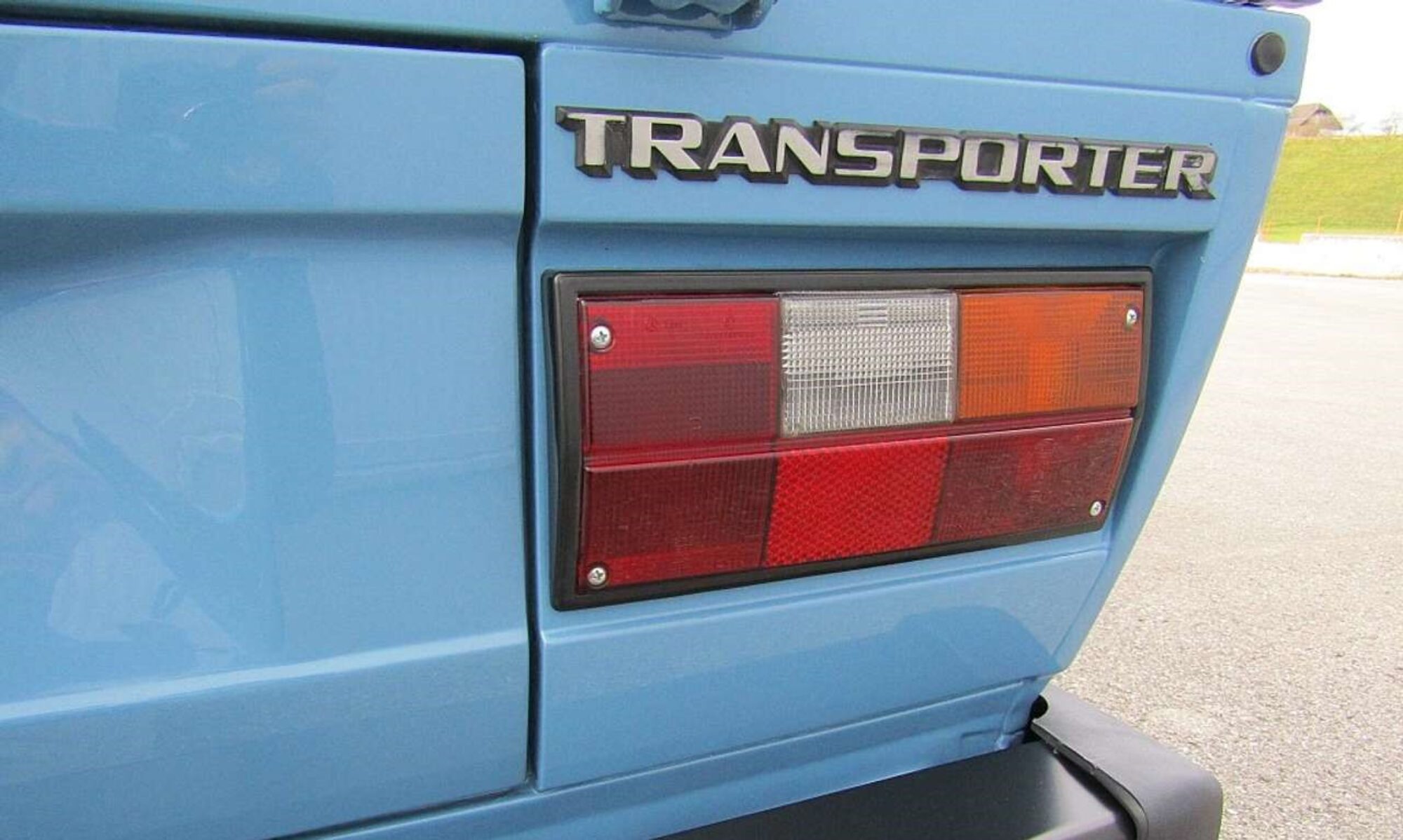I awoke feeling somewhat like a zombie. My first task was to disconnect an AC line in order to reroute it, because once again it is different on a Syncro. I was so focused on the disconnect job that when I removed said line from the compressor, the system was still under pressure. I was immediately doused in PAG oil and it was everywhere. Apparently, I didn’t have enough work to do, so I elected to create some more. The engine was in close proximity and still on the jack from when I pulled it and it got sprayed. After I cleaned up me, the floor, the van, and some various other targets, I figured it was a good time to pressure wash the engine. I rolled it out to the drive, sprayed foaming engine degreaser on it and got it nice and clean.
With the Syncro fuel door installed in the right rear quarter panel, some changes needed to be made in the body cavity in the same area. There is a dual relay looking box, known as the Idle Control Unit that needed its mount relocated up and to the right. I also needed to drill a hole for a vent line that runs from the filler neck to the fuel tank.
Then UPS showed up. I’d been waiting for a 46mm socket I’d ordered to remove the rear axle nuts. Once those were off I removed the rear brake assemblies and then the stub axle bearing carriers. All of this was necessary, because I needed to take the stripped trailing arms to GoWesty for cores on the special lengthened arms I’d purchased. I loaded up my old Ranchero and headed down there.
I owe nearly all of my van project’s potential to GoWesty. Lucas and his crew have done an incredible job of designing, engineering, manufacturing and selling a tremendous number of products to keep the VW Vanagon a viable motor vehicle 25+ years since they stopped being produced. I feel extremely lucky to live close enough to drive down there to pick up my parts, see their impressive operation and deal, personally, with their great staff. Andrea at the will call counter, Dennis and Blake on the phone, Mike in used parts, plus the few others with whom I’ve had interactions with have all been totally cool people. Thank you GoWesty for existing.
Once back at the shop, I set about installing my decoupler and assembling my fuel tank. The fuel tank had originally been covered in a fiberglass insulation with an aluminumized outer face. It was in pretty tired condition, so I redid the insulation using modern adhesive-backed heat shielding. The sending unit was quite rusty as were the two metal retaining half-circles that retained it. These half-circles are metal and each have 4 6mm studs protruding from one face. These go inside the tank and push through one gasket and are then installed with their studs sticking out of holes in the sending unit flange. Once in place they provide the hardware point to mount the sending unit to an, otherwise, plastic fuel tank. GoWesty provided me with new ones fabricated from stainless steel.
While I was doing this, my lovely assistant, set about masking and hanging plastic sheeting for the underbody Raptor coating that would occur first thing in the morning.

A Temporary Underbody Spray Both
Day Six complete!



You must be logged in to post a comment.